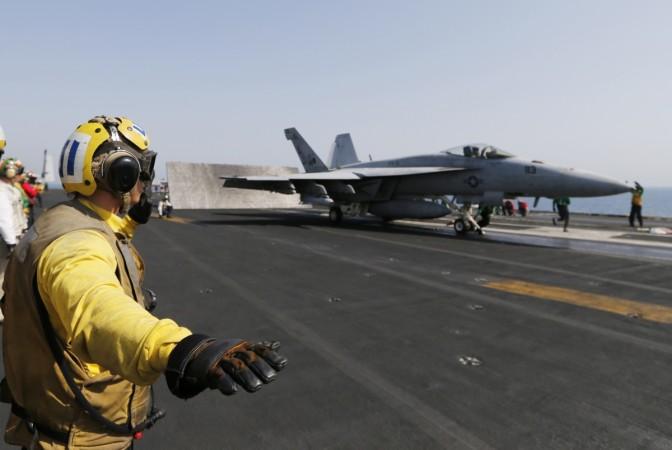
The US has sent 130 more military advisers to the Kurdish region of northern Iraq to help local forces in their fight against Islamic State militants.
The marines and special operations forces sent by the US will assess the humanitarian situation and will also engage in combat, a US defence official stated.
The number of people fleeing the militants has created the most severe displacement crisis in the region.
The US has been carrying out air strikes against fighters from Islamic State, formerly known as ISIS. The militants have forced tens of thousands to flee their homes as they have led a bloody campaign over the last few months, capturing major areas of Iraq's north and west.
The intense fighting has caused the most severe humanitarian crisis in the region with tens of thousands of people fleeing the militants' assaults.
"In northwest Iraq, thousands of people have escaped from Sinjar Mountain via Syria and back into the Dohuk governorate of the Kurdistan Region of Iraq over the past 72 hours," UNHCR spokesperson Adrian Edwards said in a statement.
"According to our NGO partners in Iraq there are now as many as 35,000 people. The new arrivals are exhausted, dehydrated and many have suffered sun or heat stroke, with the daily temperatures reaching 40 to 45 degrees Celsius."
The personnel sent to the region are in addition to about 250 military advisers who are already in Iraq. A US defence official has said the government would continue exploring ways to support "Iraqis affected by the ongoing fighting in Sinjar" and to prevent "potential acts of genocide" by ISIS, according to BBC.
The UN says some 15,000 Yazidis fleeing Sinjar have arrived in Syria, while thousands of others have camped out in various regions in northern Iraq.
As political crisis deepened in the country, with PM Nouri al-Maliki snubbed by Iraq's President refusing to step down on Monday, the fight with the militants intensified in the north with the US reportedly starting to directly supply arms to Kurdish Peshmerge fighters to help them battle the jihadists – an event that could trigger debate on the changing policies of US, which had previously insisted on selling arms only to Iraqi government.
There is, however, no clarity on what kinds of weapons were supplied to the Kurdish region in the north, which has been threatened by the militants over the days. Officials were cited by newspapers saying that it was not the Pentagon but the CIA who were involved in the clandestine arming of not only the Kurds but many foreign fighters in various conflicts.









